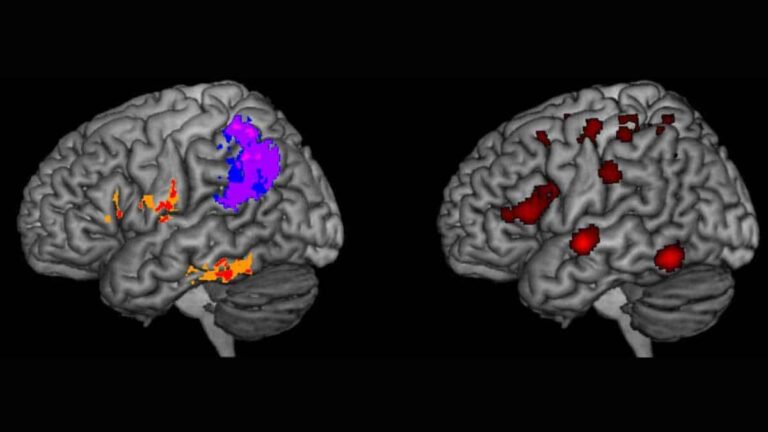Reading and listening to music at the same time affects how you hear the music, say language scientists and neuroscientists from Radboud University and the Max Planck Institute for Psycholinguistics. Says lead author Richard Kunert: “The neural pathways for language and music share a crossroads. This has been shown in previous research, but these studies…
Aggression Causes The Brain To Generate New Nerve Cells
Aggression has an influence on the production of new nerve cells in the brain, according to experiments by a group of neurobiologists from Russia and the USA, including Dmitry Smagin, Tatyana Michurina, and Grigori Enikolopov from Moscow Institute of Physics and Technology (MIPT). Researchers studied the changes that occurred in the brains of mice demonstrating…
Early Poverty Disrupts Link Between Hunger and Eating
How much you eat when you’re not really hungry may depend on how well off your family was when you were a child, according to new research published in Psychological Science. Explains psychological scientist Sarah Hill of Texas Christian University: “Our research shows that growing up poor promotes eating in the absence of hunger in…
Increasing Your Attention By Using Newly Acquired Knowledge
The concept of playing a game to make your brain more fit seems to make sense. And its the thinking behind a billion-dollar market flogging brain training games and software designed to boost cognitive ability. But scientists aren’t convinced that brain-training games actually help our brain get smarter and sharper, especially in the long term.…
Adults With COPD May Have Higher Anxiety Risk
Older adults with chronic obstructive pulmonary disease have more than three times the odds of generalized anxiety disorder than people without COPD, a new study shows. COPD is an umbrella term for several chronic lung diseases including emphysema and chronic bronchitis. Sleep problems, chronic pain, and functional limitations partially explain some of this excess risk…
Brain Volumes Change After Cognitive Behavioural Therapy
After just nine weeks of internet-delivered cognitive behavioural therapy, the brain of patients suffering from social anxiety disorder changes in volume. Anxiety is reduced, and parts of the patients’ brains decrease in both volume and activity. The findings could help us develop more effective therapies for one of the most common problems in mental health.…
The Neural Basis Of Memory In Dysgraphia
By studying stroke victims who have lost the ability to spell, researchers have pinpointed the parts of the brain that control how we write words. Johns Hopkins University neuroscientists have now linked basic spelling difficulties for the first time with damage to seemingly unrelated regions of the brain, shedding new light on the mechanics of…
Does Peer Excellence Recognition Undermine Student Performance?
From academic honors to “employee of the month” awards, we are regularly exposed to and made aware of the exemplary performance of others. Many believe such recognition not only acknowledges the individual but also motivates others to strive toward greater achievement. But new research suggests that exposure to exceptional performance can sometimes have the opposite…
Genetic Cause Of Rare Allergy To Vibration Discovered
Scientists at the National Institutes of Health (NIH) have identified a genetic mutation responsible for a rare form of inherited hives induced by vibration, also known as vibratory urticaria. Running, hand clapping, towel drying or even taking a bumpy bus ride can cause temporary skin rashes in people with this rare disorder. By studying affected…

